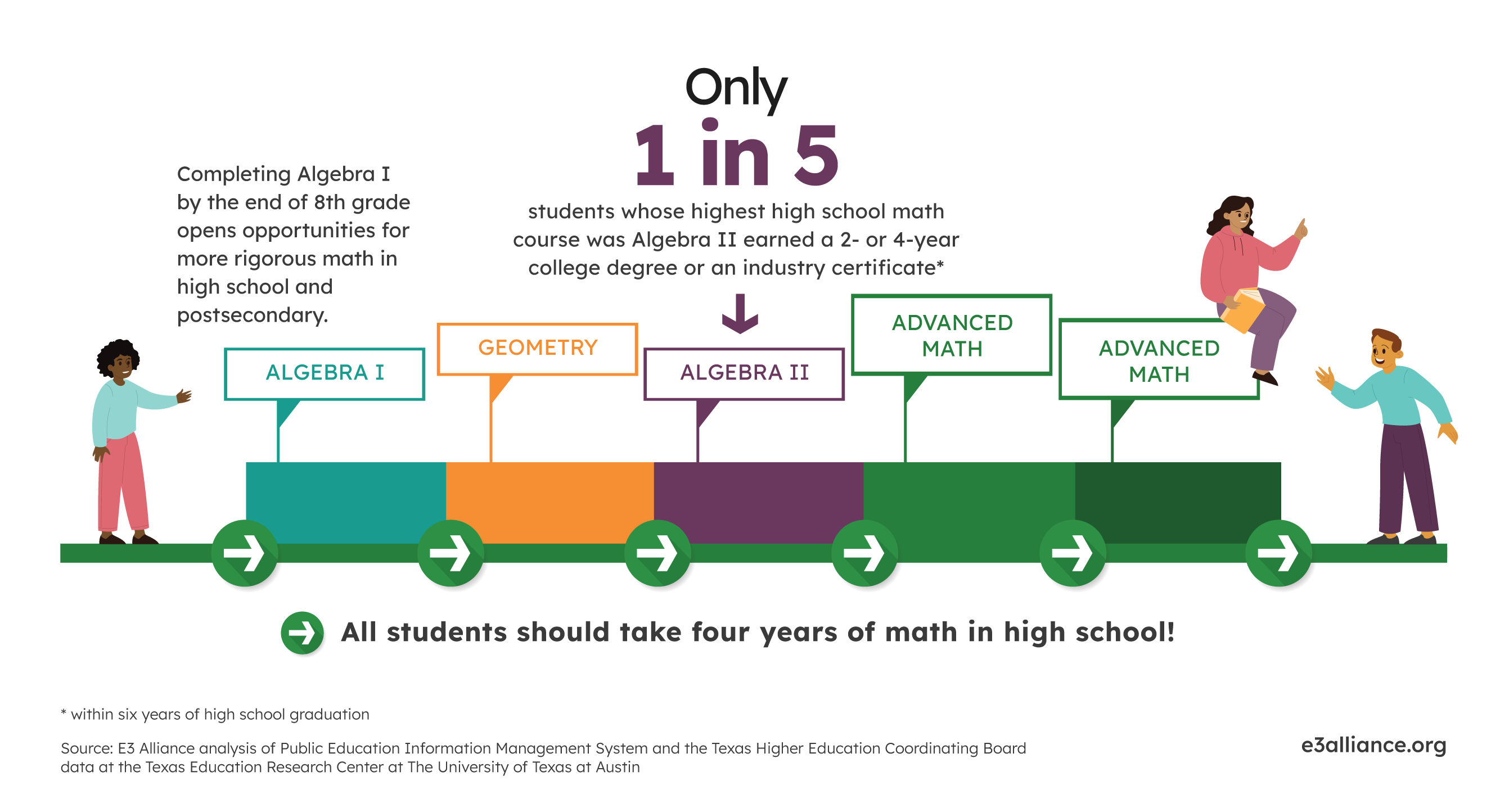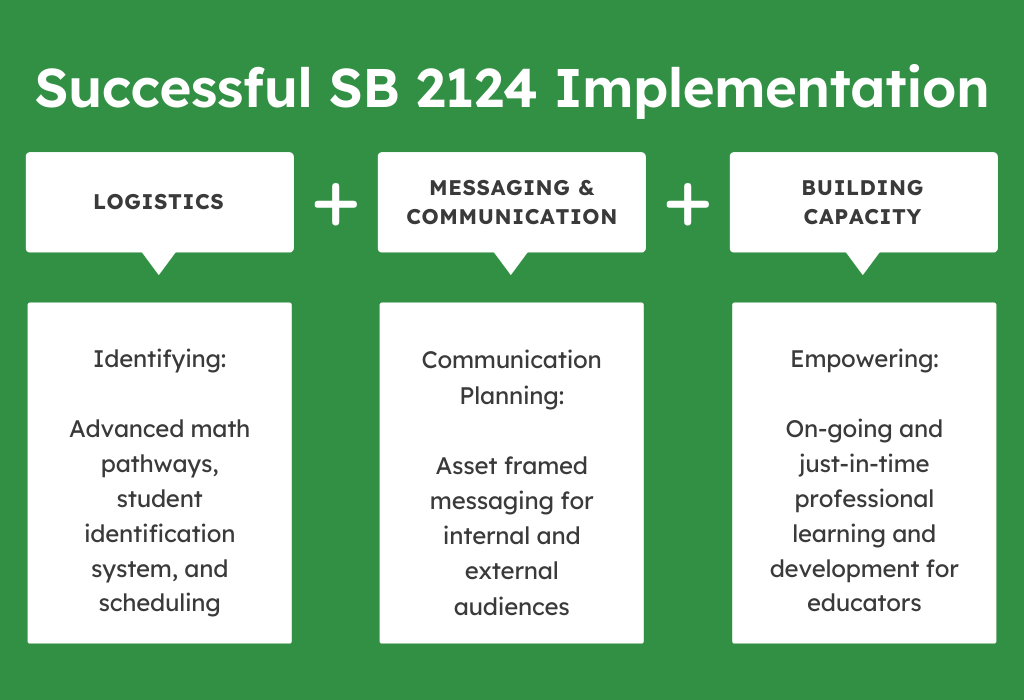
`
A new Texas law aims to get more students into advanced math classes in middle school.
Senate Bill 2124 establishes a consistent, statewide, opt-out math pathways policy to improve the chances of students with demonstrated proficiency (performing in the top 40% on the 5th-grade math assessment) automatically gaining access to Algebra I in 8th grade.
Impact on Academic and Workforce Success
- Math in middle school is a gateway to opportunity: Data reveals that taking advanced math in middle and high school, and taking math all four years of high school, significantly increases students’ postsecondary success.
- Math in middle school provides more time to pursue college credit in high school: Students who take three hours of dual credit are three times more likely to enroll in postsecondary.
- Advanced math increases postsecondary access and wages: Students who take Algebra I in 8th grade complete postsecondary credentials and see increased wages in the workplace (boost of 8% overall and 16% for rural students, Texas Tech University, February 2023)
Our E3 team developed a Needs Assessment to help your district navigate the implementation process of SB 2124. You will also find additional resources that TEA and E3 developed on TEA’s Mathematics webpage
5th grade high-performing students placed into advanced math
→→→→→
Successfully complete 8th grade Algebra I
→→→→→
Completion of 4 years of math in high school
→→→→→
Successfully complete college-aligned math courses in high school (Dual Credit, AP, OnRamps, etc.)
→→→→→→→→→→→
2x more likely to enroll and complete postsecondary
→→→→→→

Policy to Practice
E3 Alliance is committed to ensuring that school districts and campuses have the necessary resources and assistance to implement Senate Bill 2124 effectively. To achieve this goal, we have developed training sessions tailored to address district-specific needs, guiding the transition from policy to practical application. These sessions will comprise three key components:
- Logistics: Establish the essential systems for successful implementation. Topics covered will include access to courses, alignment of curriculum, and the identification and placement of students.
- Communications and Messaging: Emphasize internal and external communication strategies to leverage assets within districts and facilitate effective sharing of information and best practices.
- Building Capacity: Centered on enhancing instructional quality to address professional development for teachers, classroom pedagogy, and the promotion of equitable teaching practices.






